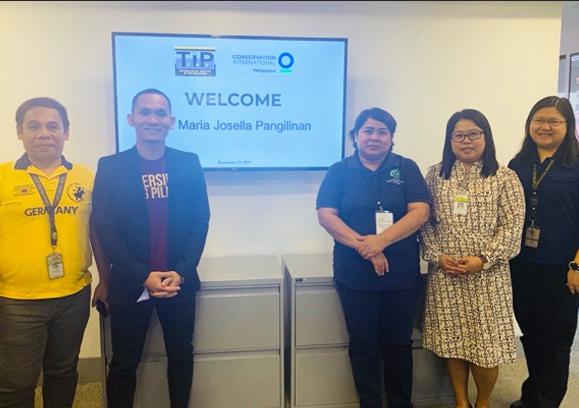The Technological Institute of the Philippines (T.I.P.) closed out 2020 with a consultancy and training engagement for a green-gray infrastructure capacity building program. The environmental sustainability partnership with the Conservation International Philippines (CIP) was formalized last September 1, 2020, with the training sessions happening in October and November last year.
As one of the country’s top technological schools, T.I.P. lent its civil engineering and architecture expertise in CIP’s training sessions attended by LGUs, municipal engineers, and construction contractors who are currently implementing green-gray solutions in their respective communities. Specifically, the program focused on efficient green-gray infrastructure (GGI) designs, which consider the unique ecosystems, processes, and construction materials available for each locality.
GGI designs are hybrid solutions that combine the restoration of natural systems (such as forests, mangroves, and wetlands) with conventional, man-made solutions (such as water treatment facilities, seawalls, and dams) to deliver climate change resilience and adaptation benefits for both ecosystems and communities. Nature is preserved and protected from further damage, while communities are made much more resilient against floods, storms, droughts, and other global warming effects.
Participating in the GGI training program were representatives from the Provincial Governments of Batangas, Iloilo, Marinduque, Occidental Mindoro, and Oriental Mindoro; the Iloilo municipalities of Ajuy, Batad, Concepcion, and Estancia; Department of Environment and Natural Resources IV-A and IV-B; Department of the Interior and Local Government IV-B; Department of Public Works and Highways; National Economic and Development Authority IV-A and IV-B; and the Iloilo Caucus of Development Non-Government Organizations, Inc. (iCode).
“Everyone has a big role to play in humanity’s fight against climate change. As an engineering school, one of the ways T.I.P. contributes to this battle is through sharing its expertise in and insights on sustainable engineering and architecture practices. In being a consultant and trainer, T.I.P. helps lay the foundation for a future where such green initiatives are the standard and the norm throughout the country. T.I.P. is thankful and humbled to have been tapped by CIP for this significant endeavor,” commented T.I.P. senior vice president Angelo Lahoz.
As an offshoot of this T.I.P.-CIP partnership, T.I.P. is also a pioneer member of the Global Community of Practice on Green-Gray Adaptation, an international multi-sectoral group taking a holistic approach to GGI designs. Other pioneer members are the University of Melbourne, City University of New York, and other international organizations. T.I.P. also participated in finalizing the updated version of CIP’s Practical Guide to Implementing Green-Gray Infrastructure, a primer for implementing GGI designs that better serve vulnerable communities.
With the goal of sustaining the T.I.P.-CIP green-gray program partnership, new programs are now being mapped out to promote GGI designs locally and abroad. The GGI designs and guides for the implementation of government agencies and other private organizations are some of the key targets this year.
This partnership is made possible by T.I.P. TechnoCoRe, T.I.P.’s thrust towards Industry-Academe Collaborative Applied Research. As an institutional direction, TechnoCoRe enables T.I.P. researchers and faculty members to participate in nation-building and solution-generating efforts with the full support of the school.
For more information on T.I.P. and T.I.P. TechnoCoRe, please visit T.I.P.’s official social media accounts through @TIP1962official for Facebook, Twitter, and Instagram. You may also visit technocore.tip.edu.ph or email [email protected].
